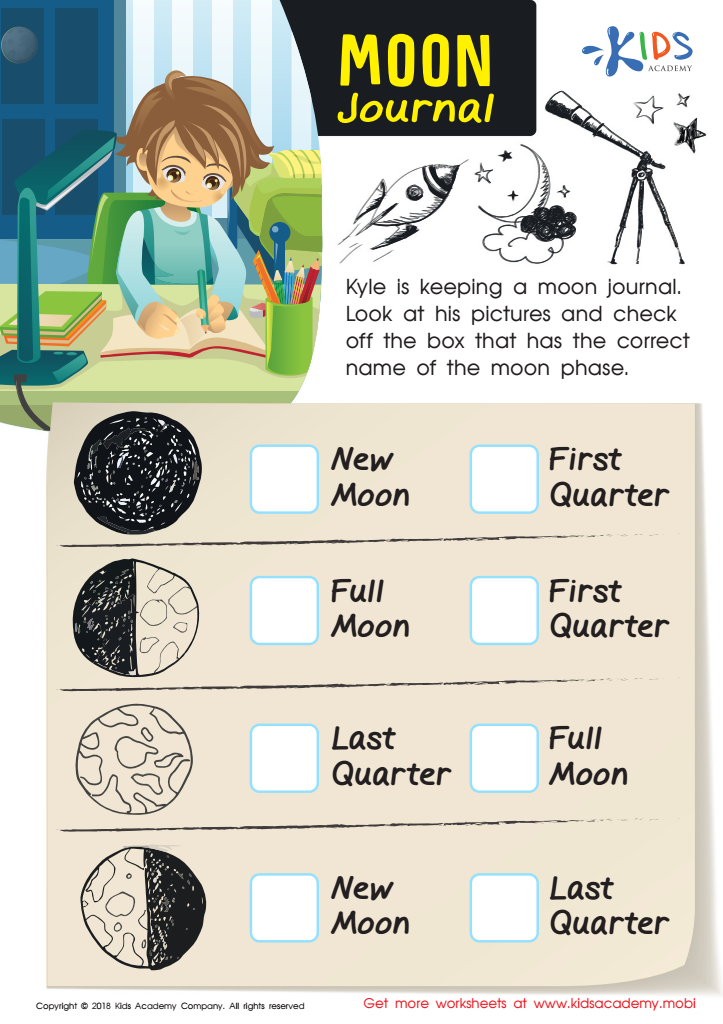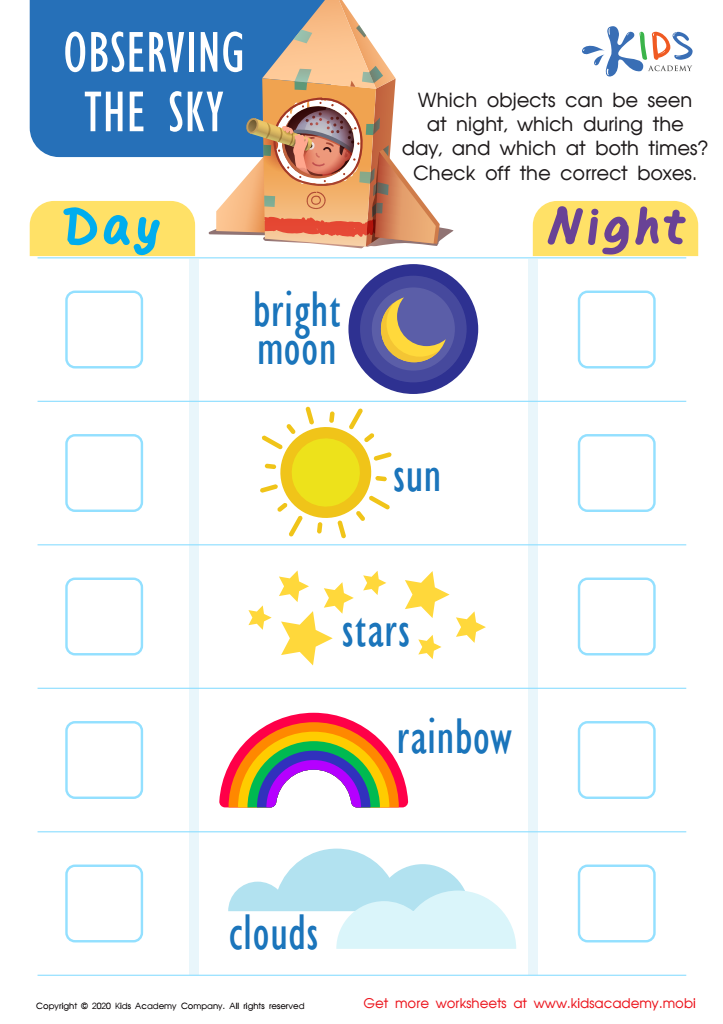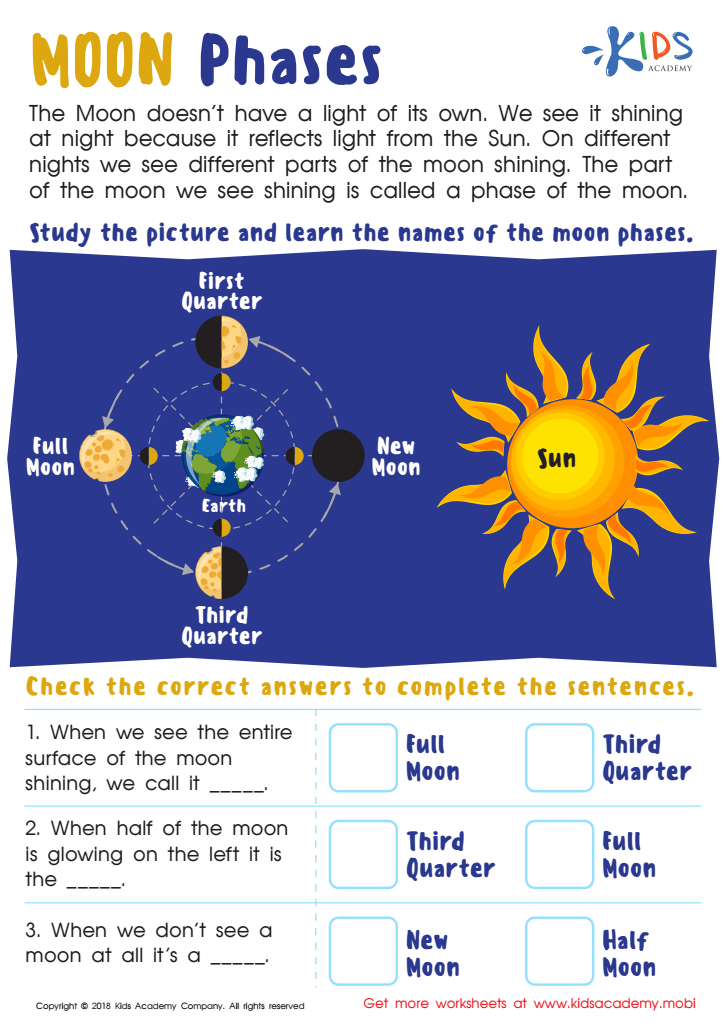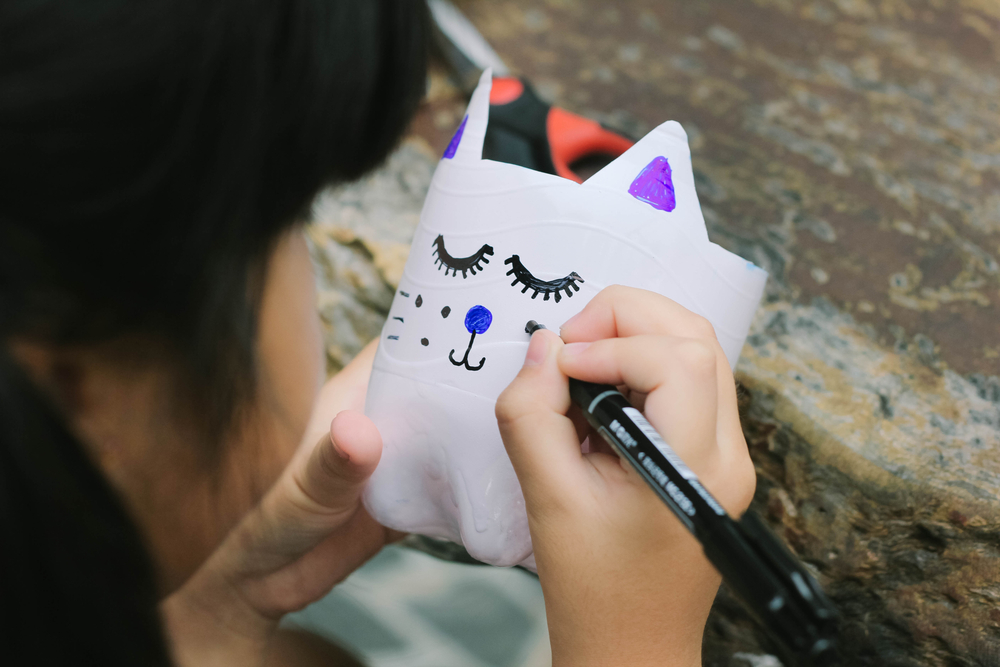Observational skills Normal Space Worksheets for Ages 6-9
3 filtered results
-
From - To
Boost your child's curiosity and critical thinking with our Observational Skills Normal Space Worksheets for Ages 6-9. Designed specifically for young learners, these engaging printables focus on the wonders of space, encouraging kids to observe, analyze, and understand various celestial objects and phenomena. Through fun activities and exercises, children will sharpen their attention to detail and enhance their science knowledge. Perfect for classroom use or home practice, these worksheets make learning about space an exciting adventure, fostering a love for science and discovery in young minds. Ready, set, blast off into a world of observation and learning!


Moon Journal Worksheet


Observing the Sky Worksheet


Moon Phases Worksheet
Observational skills are fundamental for children aged 6-9 as they form the cornerstone of learning and understanding the world around them. During this developmental period, children transition from concrete to more abstract thinking, and honing their observational skills is crucial. Observational abilities enable children to notice details, recognize patterns, and make connections, which are essential for academic success, particularly in subjects like science, math, reading, and art.
Parents and teachers who focus on enhancing these skills help children develop keen attention to detail and critical thinking capabilities. For instance, a child who learns to closely observe will be better at comprehending storylines, solving math problems, and understanding scientific processes. Additionally, observational skills improve social interactions as children learn to read social cues and understand body language, fostering empathy and collaborative skills.
Investing time in nurturing these skills in normal daily spaces allows children to engage more deeply with their environment. Simple activities like nature walks, interactive science experiments, and discussing observations during play can significantly boost a child’s curiosity and investigative spirit. Overall, strong observational skills set the foundation for lifelong learning and adaptation, making it imperative for parents and teachers to cultivate these skills during early childhood.
 Assign to My Students
Assign to My Students














